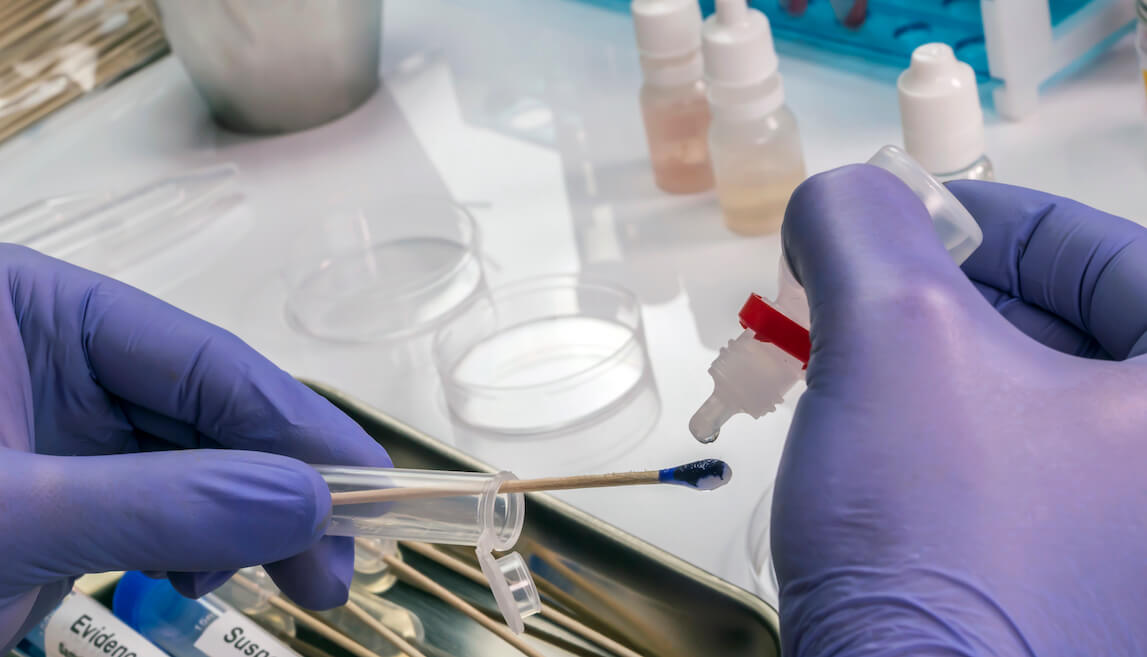
Shutterstock photo
Six years after the effort began, Iowa has cleared its backlog of sexual assault kits.
The backlog was at 4,275 kits when the Iowa Sexual Assault Kit Initiative (SAKI) began in 2015 after being financed through two grants from the US Bureau of Justice Assistance that provided $3 million to the effort.
Some kits were excluded because of a lack of information. Only kits collected before April 28, 2015, could be tested according to the grants. Of the 1,606 kits tested, four have resulted in criminal charges, with two convictions.
“Not only has the SAKI program been able to reduce the number of untested sexual assault kits, it has also created meaningful and lasting changes to the processes by which state and local practitioners respond to and investigate sexual assault cases,” said Iowa Attorney General Tom Miller.
[inline-ad id=”1″]
A sexual assault kit is a collection of materials used by a specially trained nurse to collect evidence during a sexual assault forensic examination. The evidence should then be sent to a crime lab for testing, but it isn’t always, or testing doesn’t happen right away.
That’s how a backlog happens and it’s estimated the United States has thousands of untested kits.
Part of the reason why it took so long is Iowa previously had no streamlined process for handling those kits.
Matty Tate-Smith, the public affairs coordinator for the Iowa Coalition Against Sexual Assault, said this initiative not only cleared the backlog but also streamlined the process of handling kits going forward.
“When the issue came up of the backlog and realizing that there was this huge backlog and that survivors were waiting and waiting and waiting with no real idea of where even their sexual assault kit might be or who had jurisdiction over it,” he said.
“That’s when the Iowa Attorney General’s Office stepped in to remedy the problem.”
[inline-ad id=”0″]
Survivors could also feel more validated because they’re involved in the process.
With the system called “Track Kit,” rather than waiting for a phone call, survivors can check on the progress of their kits. The tracking starts from collection at the hospital, to pick-up by law enforcement, to the crime lab for analysis, and back to law enforcement.
Under SAKI, multiple Iowa agencies and offices offered sexual assault response training to more than 2,000 people. Funds also helped create a statewide forensic examiner protocol, so there’s an established set of best practices in caring for patients and collecting evidence with kits.
“All this training and setting up the forensic examiner protocol is all about streamlining so that a survivor, no matter where they go in the state of Iowa, is able to get the same level of service and care provided to them during the sexual assault forensic exam,” Tate-Smith said.
SAKI has also led to an increase in kits being submitted and is expected to continue, according to the attorney general’s office.
[inline-ad id=”3″]
The improvements have also led to kits being tested sooner.
“It helps that the faster this process is, the less anxiety-inducing it’s going to be for a survivor,” Tate-Smith said. “And so the fact that they have improved this by leaps and bounds is always going to be in the best interest for survivors and in the best interest for those survivors who choose to work through the criminal legal system.”
Because sexual assault continues to be underreported, and criminal charges are rarely pursued, Tate-Smith said the number of convictions that come out of this will probably remain low. But, he said SAKI will improve the experiences of people who do pursue legal action.
“These cases are hard, but at least there is a preservation of the evidence that the survivor can utilize if they choose to move forward with any kind of case,” he said.
[inline-ad id=”4″]
It can take time for survivors to feel ready to seek legal action. According to the Rape, Abuse & Incest National Network (RAINN), 310 out of every 1,000 sexual assaults are reported. When they do, DNA evidence can be crucial to the outcome.
“When someone has gone through one of the most traumatic experiences that can happen to a person, this is a way to give control back to the survivor, back to the victim, so that they can at least have some control over the process and at least understand what that even looks like for them,” Tate-Smith said.
For survivors who have questions about the SAKI initiative or want help, the Iowa Coalition Against Sexual Assault may be reached at 1-800-770-1650.
The national sexual assault hotline may be reached 1-800-656-4673.
Nikoel Hytrek
12/7/21
[inline-ad id=”0″]
Politics

It’s official: Your boss has to give you time off to recover from childbirth or get an abortion
Originally published by The 19th In what could be a groundbreaking shift in American workplaces, most employees across the country will now have...

Trump says he’s pro-worker. His record says otherwise.
During his time on the campaign trail, Donald Trump has sought to refashion his record and image as being a pro-worker candidate—one that wants to...
Local News

No more Kum & Go? New owner Maverik of Utah retiring famous brand
Will Kum & Go have come and gone by next year? One new report claims that's the plan by the store's new owners. The Iowa-based convenience store...

Here’s a recap of the biggest headlines Iowa celebs made In 2023
For these famous Iowans, 2023 was a year of controversy, career highlights, and full-circle moments. Here’s how 2023 went for the following Iowans:...





